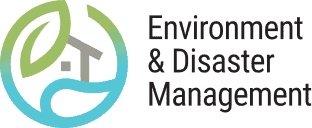Since the official 2012 launch of the Green Recovery and Reconstruction: Training Toolkit for Humanitarian Aid (GRRT), over 500 organizations and individuals have registered through the GRRT online database. We recently conducted an online assessment of the GRRT, engaging community members and users, to learn about GRRT application and training and to gather information and feedback on successes and challenges. This process is critical to our efforts to continually learn and update the GRRT based on our user experiences.
Survey respondents generally regarded the Toolkit as practical and comprehensive, found it to be clear and well-structured, and admired the diverse coverage and comprehensive treatment of multiple subjects. Users offered a variety of thoughtful and valuable suggestions for improvement, including the proposal that we update the GRRT with additional modules, offer a Spanish language version, consider a more accessible open access format, and include more localized and regionally specific case studies. The survey respondents represented a broad variety of sectors including non-governmental organizations, academia, and U.S. and foreign governmental organizations, while largely defining their use of the GRRT as a personal reference tool rather than a tool for conducting training.
For those respondents who implemented GRRT strategies, several key challenges were faced, including limited technical resources, funding, organizational support, and buy-in from senior institutional leadership. Several respondents noted that the limitations in implementation were not a reflection of the Toolkit content but of a larger challenge within the humanitarian sector in mainstreaming a green recovery approach. Users cited a lack of demand for environmental protection work within the humanitarian leadership, a general failure to recognize the critical importance of the environment in the recovery process, and the challenge of finding appropriately trained and skilled personnel. We hope to investigate and address these specific challenges through several key-informant interviews and in depth case studies analyzing both challenges and opportunities related to implementing the GRRT approach.
In moving forward, we hope to continue this rich and informative dialogue between GRRT community members and we both welcome and encourage individuals to share with us their experiences of the Green Recovery and Reconstruction Toolkit.
